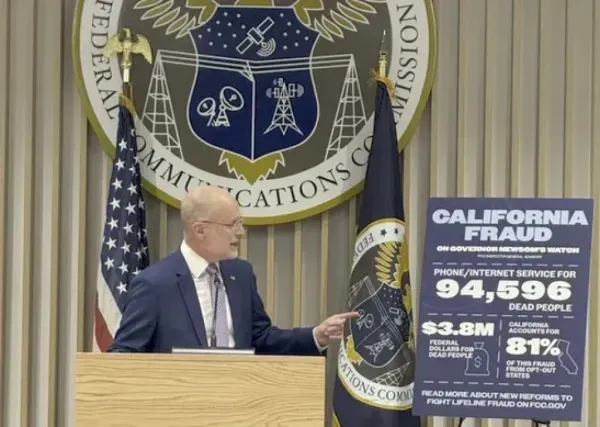Defense Bill Has $3 Billion for FCC's 'Rip and Replace' Program
The defense bill would allow the FCC to borrow $3.08 billion from the U.S. Treasury within 90 days to finance rip and replace.
Ted Hearn

WASHINGTON, Dec. 8, 2024 – A massive defense bill out Saturday has a parting gift for Federal Communications Commission Chairwoman Jessica Rosenworcel: A fresh $3 billion for the so-called rip and replace program targeting China-sourced communications technology.
The new defense bill, which has bipartisan support, would supply the full funding repeatedly sought by Rosenworcel to remove Chinese-made communications gear from U.S. networks.
The rip-and-replace program, officially called the Secure and Trusted Communications Networks Reimbursement Program, was established by the Secure and Trusted Communications Networks Act of 2019.
The law was aimed at Chinese companies Huawei Technologies Co. and ZTE Corp., which were viewed as a national security threat because of the widespread adoption of their networking technology among U.S. Internet Service Providers
But the $1.9 billion in the original reimbursement pool of funds provided by Congress was far less than the nearly $5 billion actually needed – an issue that Rosenworcel repeatedly flagged as a problem.
In a Dec. 2 letter to several members of Congress, Rosenworcel said she remained concerned about the lack of funding needed to complete rip and replace.
“Some participants in the Reimbursement Program have informed the FCC that they fear that they may need to shut down portions of their networks and withdraw from this process without completing the removal of insecure equipment,” Rosenworcel said. “Because so many of the Reimbursement Program participants serve rural and remote areas of the country, any shut down of network facilities could remove the only provider available.”
Rosenworcel, a Democrat, has announced she is stepping down Jan. 20, 2025. President-elect Donald Trump has announced FCC Commissioner Brendan Carr as her Republican successor. Carr is to take control after Trump is sworn in.
The text of the 1,813 National Defense Authorization Act (NDAA) was unveiled by House and Senate lawmakers from the armed services committees for fiscal 2025, which began Oct. 1. The bill is expected to be the last defense budget battle for current Defense Secretary Lloyd J. Austin III.
The House is set to vote on the bill this week, Reuters reported.
The defense bill would allow the FCC to borrow $3.08 billion from the U.S. Treasury within 90 days to finance rip and replace. But the agency would need to repay Treasury with the proceeds from auctioning spectrum bands in a process to be initiated within 18 months.
The auctions authorized by the defense bill are to occur even though the FCC lost its authority to conduct spectrum auctions in March, 2023, the bill said.








Member discussion